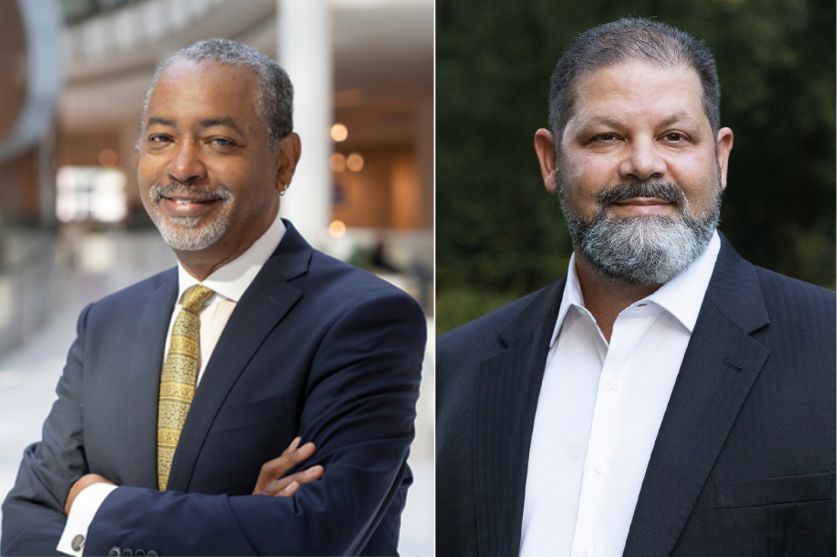
Entrepreneur on a mission to revolutionize Movies with Smartphone App
June 22, 2015
Shockingly low numbers of black women earn physics doctorates
June 23, 2015Justin Bieber and his mentor, Usher, got no love from a federal appeals court over their 2010 single “Somebody to Love” that appeared on Bieber’s My World 2.0 album. After a unanimous ruling last week, the duo songsters will now face a $10 million lawsuit.
In 2013, singer Devin Copeland and songwriting collaborator Mareio Overton sued the R&B superstar (Usher) and Calvin Klein underwear model (Bieber), among others, for copyright infringement over “Somebody to Love.” Copeland, who performs under the stage name De Rico, charges his 2008 composition “Somebody to Love” is close enough in title, time signature, beat, chord progression, and lyrics as Usher and Bieber’s track to constitute copyright infringement. The 4th U.S. Circuit Court of Appeals in Richmond, Virginia agreed, sending the case back to the lower court for a jury trial.
Copeland and Overton assert Grammy Award winner Usher took the song to Bieber after a record scout played it for him. After getting in contact with Usher’s people, plaintiffs suggest Usher and other songwriters “conspired…to directly copy Plaintiffs’ song ‘Somebody to Love,’ intending to appropriate Plaintiffs’ intellectual property as their own.” Usher eventually gave the song to Bieber and Usher appeared on a remix of the single.
By a 3-0 vote, the Appeals court seemed tone deaf to Usher and Bieber’s claims. “After listening to the Copeland song and the Bieber and Usher songs as wholes, we conclude that their choruses are similar enough and also significant enough that a reasonable jury could find the songs intrinsically similar,” Circuit Judge Pamela A. Harris wrote.
U.S. District Judge Arenda L. Wright Allen dismissed the suit in March 2014, opining that no reasonable jury could find highway song robbery – copyright infringement – for “Somebody to Love.” She averred that the two versions differed significantly in tone and lyrical content.
The digital era and its flexible array of formats and platforms lay the foundation for successful music copyright claims. Nowadays proof of infringement involves fact-based showings that the defendant had “access” to the plaintiff’s work and that the two works are “substantially similar” in terms of hook, theme, melody, lyrics, rhythm, pitch, verse/chorus, etc. “Access” is much easier to prove today than it was before the Internet. The arrival of the Internet and proliferation of social media means artists now have “access” to everything.
In this instance, Circuit Judge Pamela Harris added that it was not relevant that the versions by Usher and Bieber were “dance pop, perhaps with hints of electronica” while the plaintiff’s recording was “squarely” R&B. Usher and Bieber’s version reached No. 15 on the U.S. Billboard Hot 100 chart.
It is acknowledged that without strong copyright, music cannot be profitable. Usher (a.k.a. Usher Terry Raymond IV), who is performing at this year’s Essence Music Festival in New Orleans, is a force in the entertainment industry. The singer/songwriter has undeniable musical chops but so do Robin Thicke and Pharrell Williams.
Stories about music bootlegging appear regularly in the public discourse. Earlier this year a jury awarded the heirs of the Marvin Gaye estate nearly $7.4 million in damages based on their claim that the Robin Thicke and Pharrell Williams smash “Blurred Lines” infringes the copyright in Gaye’s 1977 disco classic, “Got to Give it Up.” Musicologists called upon to predict the “Blurred Lines” judgment generally concluded pre-verdict that the songs were actually not all that alike.
The “Blurred Lines” jury decision and the “Somebody to Love” lawsuit no doubt spark a vital dialogue regarding whether today’s artists are plagiarizing or praising earlier works.
Was this an instance of an artist ripping off another artist? Some will question, and rightly so, whether the Thicke/Williams and Usher/Bieber litigation may trigger a so-called chilling effect on songwriting.
Stacy Slotnick, Esq. is an entertainment lawyer at Star Equity (formerly Northeast Venture Group) in New York. She drafts and negotiates contracts and addresses trademark, copyright, patent, and other intellectual property issues. Stacy also directs public relations campaigns and consults on branding, licensing, and merchandising. Stacy (a.k.a. The Foxy Jurist) holds a J.D., cum laude, from Touro Law Center, and a B.A., summa cum laude, from the University of Massachusetts Amherst.
Follow Stacy Slotnick on Twitter@TheFoxyJurist








